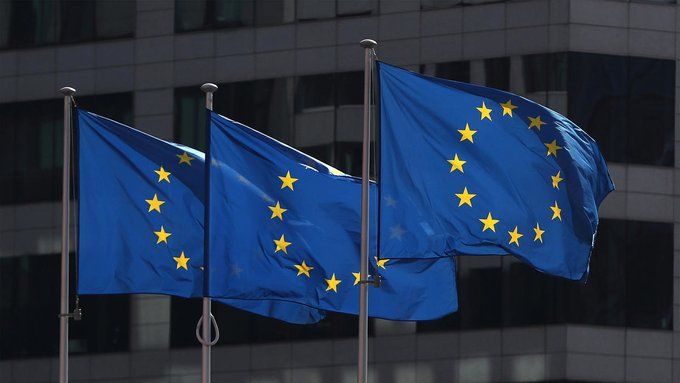The European Parliament voted by a large majority on Thursday to demand changes to a draft long-term EU budget that was agreed by the 27 member states.
The resolution warned that MEPs would not approve the hard-fought text when they vote later this year and called for negotiations to “improve the proposal.”
The motion passed by 465 votes to 150. European leaders wrangled for four days and nights over the weekend, emerging Tuesday with a huge coronavirus recovery plan and a trillion-euro, seven-year budget.
But the European Commission and many MEPs were upset that many of their priorities in the multi-year budget were cut and some spending was shifted to virus plan.
“All too often adherence to national interests and position jeopardises the achievement of common solutions in the general interest,” the resolution said.
And it warned that the EU leaders had “failed to tackle” the issue of how the borrowing to fund the emergency virus recovery plan would be repaid from the budget.
It deplores cuts to EU health and research programmes, as well as support to education and digital innovation.
“We think that it is not giving proper answers to the challenges of the next seven years,” said Manfred Weber, leader of the centre-right parliamentary bloc.
Earlier, Charles Michel — the president of the European Council of leaders, who helped secure the compromise deal — had urged the MEPs to back it.
Michel said the budget plus the rescue plan create a 1.8-trillion-euro ($2.2 trillion) stimulus that would go a long way to reversing Europe’s massive recession.
“This moment, it’s my conviction, is pivotal in European history. We acted fast and with urgency,” he told European Parliament in Brussels.
“This response is massive compared to the size of the economy. Europe’s response is greater than that of the United States or China,” he told MEPs.
But Ursula von der Leyen, the president of the European Commission, admitted that the longer-term budget, known as the MFF, involves cuts that are hard to stomach.
“Yes, we managed to avoid even further cuts, as some member states wanted, but this MFF is a difficult pill to swallow,” she said.
However, she said, here “we should take a step back and look at where we are coming from” — namely a hole of around 70 billion euros because of Britain’s divorce from the EU.
“The good news is that we have managed to plug almost all of that gap. That means that every country has to pay more,” she said.,The European Parliament is expected to vote on the 1,074-billion-euro MFF by the end of the year.,It does not have a vote on the 750 billion euro post-coronavirus recovery plan, though it is closely linked to the EU budget.
The deal was sealed after intense negotiations that saw threats of walkouts, vetoes and fierce opposition from the “frugal” Netherlands and Austria.
Germany and France strongly backed the package, which enables joint borrowing by the 27 members of the bloc to help virus-hit countries like Spain and Italy.
“The debate that we’re opening now, it is really about the meaning and the direction that we wish to give to this European project in the coming years,” Michel said.
“Effectively, what we’ve done is renew our European marriage vows for 30 years, we have confirmed European unity.”






